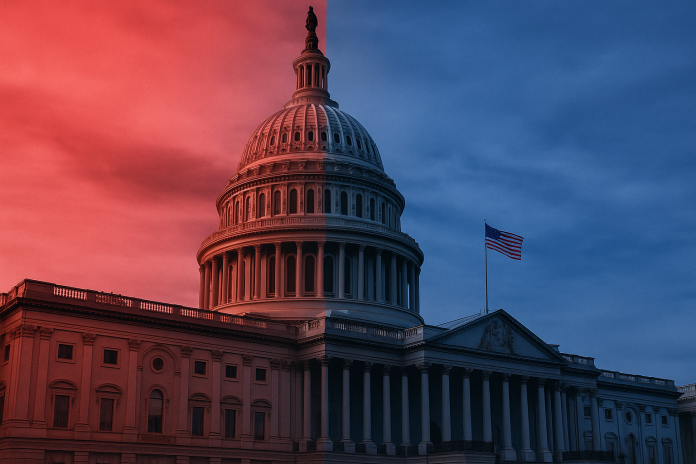
The political world in Washington received an unexpected jolt on Friday. Hours before New York City Mayor elect Zohran Mamdani arrived for his introductory meeting with President Trump, the House of Representatives approved a resolution rejecting socialism and warning against its influence on national policy. Although the measure carries no legal force, it stirred debate across both parties and shaped the atmosphere surrounding the mayor elect’s visit.
The resolution passed with a comfortable majority, reflecting near universal Republican support alongside votes from dozens of Democrats. Backers framed it as an affirmation of individual liberty and a statement against expanding state control of economic life. Opponents described it as a distraction from urgent concerns facing American families.
Representative Maria Elvira Salazar of Florida sponsored the measure. She spoke about the experience of families, including her own, who left countries governed by authoritarian systems that portrayed themselves as socialist. Her remarks were intensely personal, and she described the vote as a stand taken out of moral responsibility.
Discussion on the House floor grew confrontational at times. A dispute arose when Representative Maxine Waters objected to how Salazar referred to her past travel to Cuba. The disagreement did not alter the course of the debate, but it highlighted how emotionally charged the topic remains for lawmakers who either recall events abroad firsthand or have constituents shaped by them.
While Republicans were united, Democrats were divided. Many who voted against the resolution argued that lawmakers should devote their time to easing burdens such as housing costs, food prices, and medical expenses. Some also accused Republicans of staging an ideological exercise instead of working to pass policies that would deliver relief. Representative Robert Menendez of New Jersey expressed that view, saying constituents expected action rather than declarations.
A different group of Democrats defended their support for the measure by pointing to their own communities’ histories with countries that experienced repression under self described socialist governments. Several from New York and New Jersey, including House Minority Leader Hakeem Jeffries, cast votes in favor. Jeffries had endorsed Mamdani late in the mayoral race, yet backed the resolution, illustrating the complexity of the issue within his state’s delegation.
Progressive members saw things differently. Representative Alexandria Ocasio Cortez and other colleagues close to her argued that the resolution painted diverse ideas with a single brush and did little to advance practical solutions. They also warned that the debate risked fueling fear rather than understanding.
Republicans emphasized examples from the twentieth and twenty first centuries in which one party rule and state dominance led to mass suffering. Representative Nicole Malliotakis spoke about her mother’s departure from Cuba, describing it as an escape from a system that crushed basic freedoms. Other members drew attention to experiences in Eastern Europe, East Asia, and South America where centralized control produced calamity or long term economic decline.
The House vote coincided with Mamdani’s arrival in Washington. The timing linked the resolution to the mayor elect even though he had no role in it. Mamdani brushed aside questions about the measure, repeating that his priority is making New York City more affordable. He said he intends to look for practical common ground with the administration even when disagreements are plain.
President Trump adopted a tone far calmer than the rhetoric he used during the mayoral race, when he mocked Mamdani with ideological labels. In an interview earlier in the day, Trump said he expected their conversation to be courteous and constructive. After the meeting concluded, both appeared briefly before reporters, offering little detail but presenting a calm front.
A similar resolution has been introduced in the Senate by Republican Rick Scott of Florida. Whether it advances remains uncertain, though it has already served its purpose as a statement of Republican priorities and as a point of contrast with Democrats who embrace left leaning economic approaches.
For Mamdani, the day illustrated how his election has become part of a broader national conversation about America’s future political direction. He appears determined to keep the focus on city challenges, yet national figures on both sides seem ready to cast his rise as symbolic of larger debates. How these crosscurrents affect his ability to negotiate for his city remains an open question.
This image is the property of The New Dispatch LLC and is not licenseable for external use without explicit written permission.